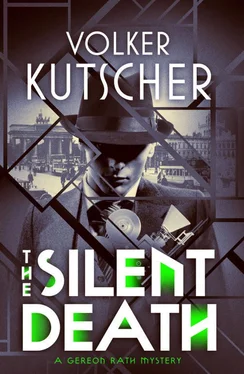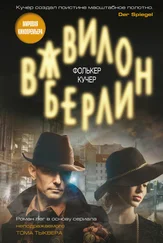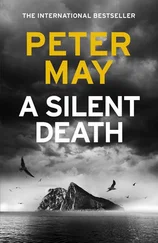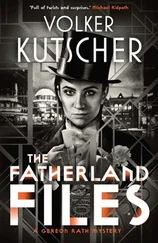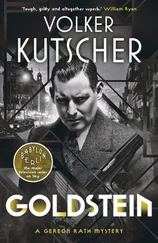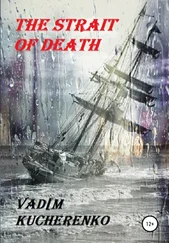Rath glanced at the time, carefully gathered the files and returned them to their rightful place. It was time to go.
She can’t hide the impression the surroundings are making on her. It’s less the paintings on the walls and the remnants of the room’s former pomp than its sheer size and incomparable view of the park and lake. She hasn’t seen anything like this before. He can sense it.
Most film producers are too tight. If they receive an actress then, at most, it’ll be a grimy apartment, a love nest, but never their real home, never their real life.
Albert hovers discreetly in the background, refilling their glasses when necessary and serving individual courses from the elaborate menu.
He doesn’t want any other staff around him today. As always, when he has guests like her.
The enormous table just for the two of them.
He raises his glass. ‘To your future, Jeanette.’
She smiles. ‘To our future.’
‘Then we are agreed?’
‘You’re offering a lot of money. Artistically it’s also a challenge, especially now, at a time when people are only shooting talkies. How could I say no?’
It’s only about the money for her. He can see in her eyes that she doesn’t care about art. Albert serves the fruit salad, and she uses her dessert fork to impale a small, green piece of fruit, before carefully placing it in her mouth and making a delighted face.
‘Mmmh! What’s that?’
‘Yangtao. You can only get it from the Chinese in Kantstrasse.’
‘Very good.’
‘And healthy.’ He takes a forkful himself. ‘You won’t regret signing with me. I am financially independent and can devote myself entirely to the creation of cinematic art.’
‘You don’t view talkies as art?’
‘How can they be?’ He has said it too loud, but she is more surprised than startled. He lowers his voice. ‘Sound film is destroying cinematic art. A technical fad that turns film, which has reached its artistic pinnacle, back into a spectacle, like in the beginning when it was just a fairground sensation. As an artist you must refuse to be part of it. You don’t belong in the fairground!’
‘Refuse? I don’t know. I’d still like to make films with other people, I’m not signing an adhesion contract.’
‘No one is asking you to.’
‘Don’t misunderstand me,’ she says. ‘I’m extremely grateful for the opportunity, and that you’re taking me seriously as an artist. However, it doesn’t mean I’m prepared to close myself off to new developments. You have to understand that. As for a fairground sensation… Aren’t you exaggerating a little?’
He was waiting for this moment even before seeing the greed in her eyes.
‘I understand you perfectly well. Of course you want to make other films. Personally, I hold your older, silent films in higher esteem, and it’s that sort of film I’d like to make with you again.’ He raises his glass and offers another placatory smile. He has faith in the power of his smile, and in the power of his voice. ‘Forgive me for getting so worked up, but you see film… film is my life.’
That is only a half-truth. Without film he would be dead, would have died long ago.
The day he shattered the mirror…
…there is a crunch as his mother steps on the broken glass. She halts in the midst of a sea of glittering shards and gazes at the clouded frame, on which there are still a few sharply serrated pieces, a wreath of frozen flames. Her voice, distant and yet so near. ‘What has happened?’
He doesn’t respond, but stares at her out of the dead eyes he can no longer stand. He tried to banish them with the heavy tumbler, whose shards are now mixed with those of the mirror and the drops of water that glittered between them before seeping into the carpet.
He has banished his ghost forever from his room.
Mother seems to understand. She doesn’t ask any more questions. The glass crunches under her feet as she makes her way towards the bed.
He must have been dreaming. He didn’t notice her entering the bedroom. Yet he has been awake since five, reading. The hours according to which those outside organise their day mean nothing to him. The days mean nothing to him anymore.
What does she want from him at this hour? For him to come to breakfast? Hardly, she never fetches him to eat. She leaves that to Albert. She is never there when he wolfs down the few bites his hungry stomach can manage. Or when he takes minutes over each, waiting until his saliva has lubricated every last piece before swallowing the warm paste.
He has tried both wolfing down his food and chewing it slowly; neither can banish his hunger. His eternal hunger, the background noise that drowns out everything else in his life, this life that doesn’t merit the name. He finds solace from book to book, dream to dream. It is only time he need overcome, time that consists merely of breathing, waiting and starving. Time is his enemy. He has learned that already. Only when he exists out of time can he be happy.
That is why he is angry with his mother, because she has hauled him back to the present.
He looks up, clinging to his book like a treasure she is threatening to snatch away.
Good morning, my boy. Do you know what day it is today? She gives him her hand. Your father has a surprise for you. Come on!
Too often they have lured him with promises that have turned out to be traps, but he doesn’t dare contradict her.
Watch out!
She puts his shoes on for him so that he doesn’t cut himself, and throws his dressing gown over him.
He follows her through several doors. His splendid prison, in which an eternal twilight reigns, is enormous. They descend the steps and enter the great hall, the vestibule in which even his mother seems tiny and lost. Her shoes click noisily over the stone floor, while his steps are so inaudible it’s as if he is already as dead as he feels.
He gives a start when she throws open the cellar door, a door that is never otherwise opened. His grandfather, who made his money trading shares, built a labyrinthine medieval castle on the Wannsee, sombre Gothic, as was the fashion before the war. The cellar door is reminiscent of a dungeon. What do they have in store for him?
When she sees his hesitation, Mother smiles and takes his hand. Have no fear, she says.
She leads him down the stone staircase into the darkness. It doesn’t smell mouldy, but he doesn’t like the cellar all the same. He is afraid of his father, of his stick, his implacability. Does he mean to lure him into his new prison? Into a narrow, dark dungeon, the better to keep an eye on him? So that not even Mother can slip him something to ease his suffering.
Have no fear, she says again, and his fear grows.
Downstairs, she opens the door to a dark room, and a flickering beam of light. She takes him by the shoulders and pushes him through, and in the semi-darkness he recognises his father’s face. That face which can no longer smile.
Happy Birthday, my boy, Mother says, taking him gingerly in her arms. Look what we have for you.
He closes his eyes. He doesn’t want to be reminded that time is passing. Let them forget his birthday, let them forget the passing of time!
Over here, says Father, this is your birthday present.
He opens his eyes and hears a quiet hum in the darkness. When he sees it, all of a sudden, he knows why he must stay alive.
A bright island grows in the dark room, drawing his gaze like a magnet, seeming to absorb him into himself. Bright images, a garden flooded by sunlight, the branches of trees dancing in the wind. And happy people in this garden. He doesn’t know what will happen, only that he cannot avert his gaze.
He hears them speak, hears leaves rustling in the wind, although he knows the only sound is the hum of the projector. Now he knows why it is worthwhile. Why the agony he endures merely to prolong a life full of agony could still be worthwhile.
Читать дальше
